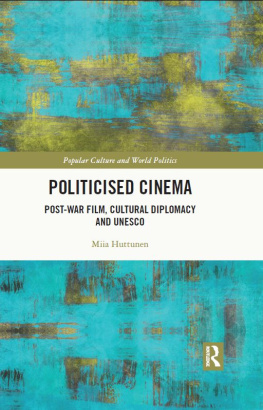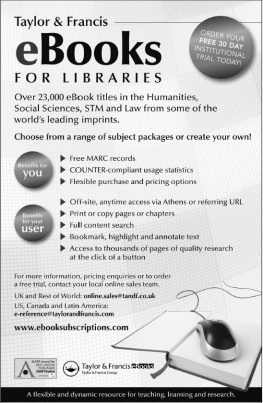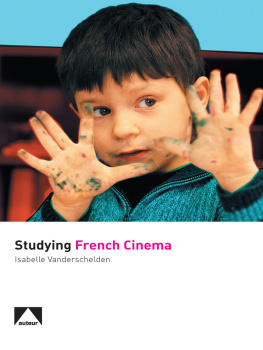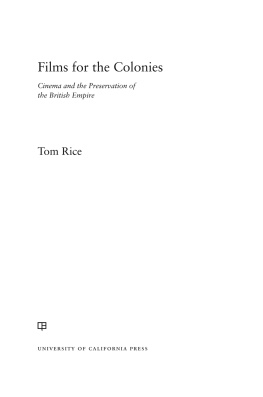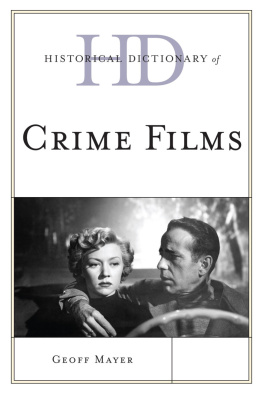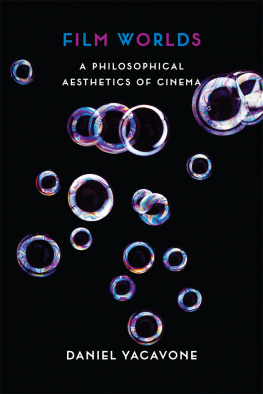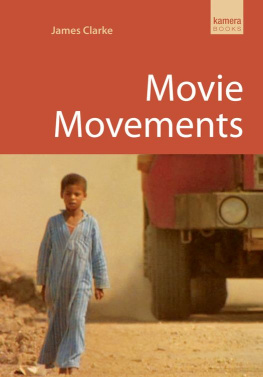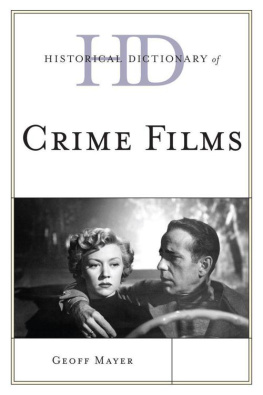Politicised Cinema
Politicised Cinema demonstrates how taking a collection of seemingly apolitical films and using them as an instrument for serving explicit political aims can be used as a force for good.
Through an analysis of Orient: A Survey of Films Produced in Countries of Arab and Asian Culture, a film catalogue published by UNESCO and the BFI in 1959 to promote intercultural understanding between the East and the West, this book argues for the importance of studying the ways the interpretation of films can be guided to serve a specific political agenda, even when the films themselves were originally produced with very different aims in mind. The author focuses on how the catalogue positions culture and its cinematic representations as a marker of difference between the Eastern and Western worlds, and shows that even major cultural conflicts such as the Cold War and the decolonisation process can be reframed in service of UNESCOs cultural diplomatic agenda. The book explores the ways in which the catalogue of Eastern films deemed suitable for Western audiences became a weapon to fight against prejudice, intolerance, and bigotry in a politicised battle over dismantling the proclaimed link between difference and conflict.
This book will be of interest to students, researchers, and academics in visual politics, cinematic international relations, cultural diplomacy, global governance, and international cultural politics, as well as film studies, Asian studies, and cultural studies. In addition, policymakers and practitioners in the fields of cultural diplomacy and cultural policy will find the empirical case study to be of use in practical work.
Miia Huttunen is a Postdoctoral Researcher in the Department of Social Sciences and Philosophy at the University of Jyvskyl, Finland.
Popular Culture and World Politics
The Popular Culture World Politics (PCWP) book series is the forum for leading interdisciplinary research that explores the profound and diverse interconnections between popular culture and world politics. It aims to bring further innovation, rigor, and recognition to this emerging sub-field of international relations.
To these ends, the PCWP series is interested in various themes, from the juxtaposition of cultural artefacts that are increasingly global in scope and regional, local, and domestic forms of production, distribution, and consumption; to the confrontations between cultural life and global political, social, and economic forces; to the new or emergent forms of politics that result from the rescaling or internationalization of popular culture.
Similarly, the series provides a venue for work that explores the effects of new technologies and new media on established practices of representation and the making of political meaning. It encourages engagement with popular culture as a means for contesting powerful narratives of particular events and political settlements as well as explorations of the ways that popular culture informs mainstream political discourse. The series promotes investigation into how popular culture contributes to changing perceptions of time, space, scale, identity, and participation while establishing the outer limits of what is popularly understood as political or cultural.
In addition to film, television, literature, and art, the series actively encourages research into diverse artefacts including sound, music, food cultures, gaming, design, architecture, programming, leisure, sport, fandom, and celebrity. The series is fiercely pluralist in its approaches to the study of popular culture and world politics and is interested in the past, present, and future cultural dimensions of hegemony, resistance, and power.
Edited by Matt Davies, Newcastle University, Kyle Grayson, Newcastle University, Simon Philpott, Newcastle University, Christina Rowley, University of Bristol, & Jutta Weldes, University of Bristol.
Nationalism and Popular Culture
Edited by Tim Nieguth
Geopolitics, Northern Europe, and Nordic Noir
What Television Series Tell Us About World Politics
Robert A. Saunders
Politicised Cinema
Post-War Film, Cultural Diplomacy and UNESCO
Miia Huttunen
For more information about this series, please visit: https://www.routledge.com/Popular-Culture-and-World-Politics/book-series/PCWP
First published 2022
by Routledge
2 Park Square, Milton Park, Abingdon, Oxon OX14 4RN
and by Routledge
605 Third Avenue, New York, NY 10158
Routledge is an imprint of the Taylor & Francis Group, an informa business
2022 Miia Huttunen
The right of Miia Huttunen to be identified as author of this work has been asserted in accordance with sections 77 and 78 of the Copyright, Designs and Patents Act 1988.
All rights reserved. No part of this book may be reprinted or reproduced or utilised in any form or by any electronic, mechanical, or other means, now known or hereafter invented, including photocopying and recording, or in any information storage or retrieval system, without permission in writing from the publishers.
Trademark notice: Product or corporate names may be trademarks or registered trademarks, and are used only for identification and explanation without intent to infringe.
British Library Cataloguing-in-Publication Data
A catalogue record for this book is available from the British Library
Library of Congress Cataloging-in-Publication Data
A catalog record has been requested for this book
ISBN: 978-1-032-12000-3 (hbk)
ISBN: 978-1-032-12005-8 (pbk)
ISBN: 978-1-003-22260-6 (ebk)
DOI: 10.4324/9781003222606
Typeset in Times New Roman
by KnowledgeWorks Global Ltd.
Contents
1UNESCOs one world paradox and the cultural diplomacy conundrum
Founding ideals
UNESCOs cultural internationalism
In the minds of men
2Debating power over the Orient
Contradicting aims, competing motives
The selection
A culture of peace
3Shady borders: Opening a space for cultural diplomacy
The major project on the mutual appreciation of Eastern and Western cultural values
Locating borders
Three halves of the Cold War world
4The three Easts
Eastern heroes
Symbols of hope
Global communities
5Cultural diplomatic strategies: Japan and UNESCO
Image rehabilitation
Remorse, redemption, and the splendour of wars past
Hope, hardship, and the peace of the present
National interests and global ideals
6Five Kurosawas and the incomprehensible East
Seven points of difference
National distinctiveness and cultural universals
- 1 UNESCOs one world paradox and the cultural diplomacy conundrum
- Founding ideals
- UNESCOs cultural internationalism
- In the minds of men
- 2 Debating power over the Orient
- Contradicting aims, competing motives
- The selection
- A culture of peace
- 3 Shady borders: Opening a space for cultural diplomacy
- The major project on the mutual appreciation of Eastern and Western cultural values
- Locating borders
- Three halves of the Cold War world

